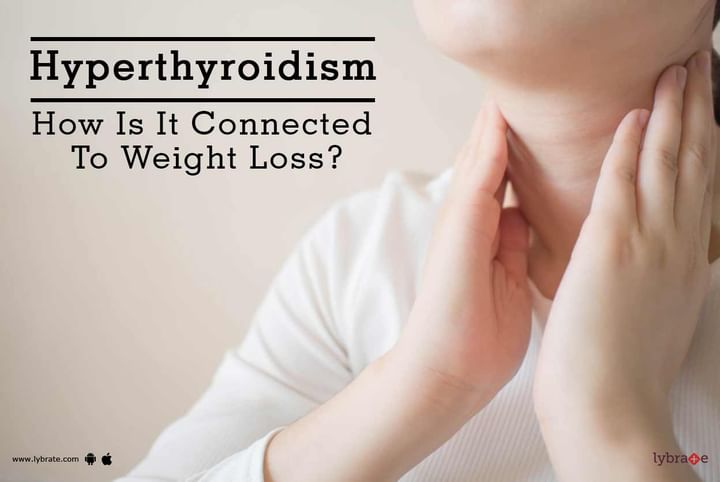Hyperthyroidism - How Is It Connected To Weight Loss?
Hyperthyroidism is a condition in which the thyroid overproduces hormones.The thyroid is a small, butterfly-shaped gland located at the front of your neck and releases hormones that control your metabolism (the way your body uses energy), breathing, heart rate, nervous system, weight, body temperature, and many other functions in the body.
The Relationship Between Hyperthyroidism and Weight-
Since the BMR in patients with hyperthyroidism is elevated, many patients with an overactive thyroid do, indeed, experience some weight loss. Furthermore, the likelihood of weight loss occurring is related to the severity of the overactive thyroid. Thus, if the thyroid is extremely overactive, the individual’s BMR increases which leads to increased caloric requirements to maintain that weight. If the person does not increase the calories consumed to match the excess calories burned, then weight loss will ensue.
As indicated earlier, the factors that control our appetite, metabolism, and activity are very complex and thyroid hormone is only one factor in this complex system.
Since hyperthyroidism also increases appetite, some patients may not lose weight, and some may actually gain weight, depending on how much they increase their caloric intake.
Symptoms-
- Increased appetite
- Nervousness
- Restlessness
- Inability to concentrate
- Weakness
- Irregular heartbeat
- Difficulty sleeping
- Fine, brittle hair
- Itching
- Hair loss
- Nausea and vomiting
- Breast development in men
The following symptoms require immediate medical attention:
- Dizziness
- Shortness of breath
- Loss of consciousness
- Fast, irregular heart rate
Hyperthyroidism can also cause atrial fibrillation, a dangerous arrhythmia that can lead to strokes, as well as congestive heart failure.
Treatment-
Medication
Antithyroid medications, such as methimazole (Tapazole), stop the thyroid from making hormones. They are a common treatment.
Radioactive Iodine
Radioactive iodine is given to over 70 percent of U.S. adults with hyperthyroidism, according to the American Thyroid Association. It effectively destroys the cells that produce hormones.



+1.svg)
